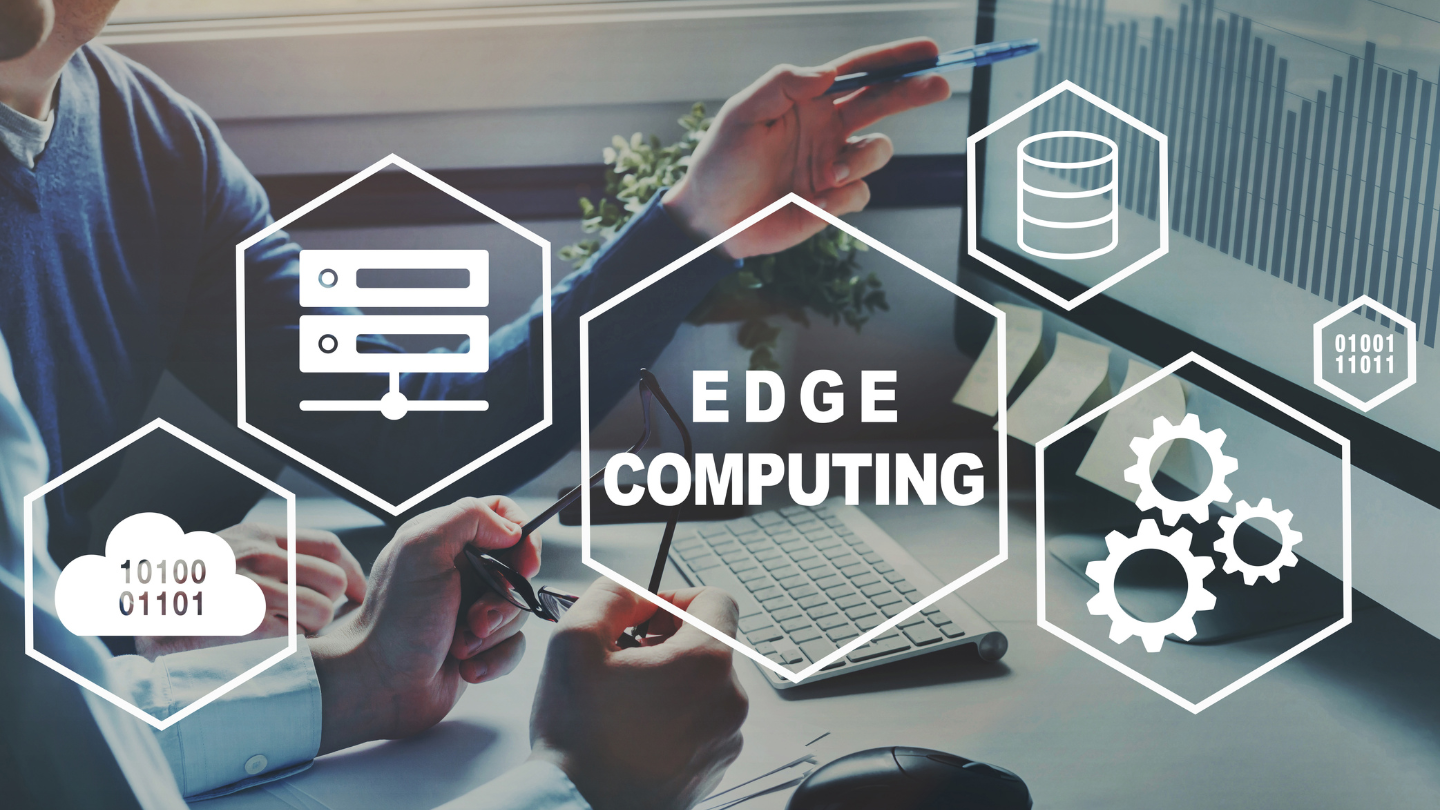Top 15 Business Technology Trends for 2025 | Insights & Innovations
Top 15 Business Technology Trends for 2025 | Insights & Innovations
2025 marks another essential time for the landscape of business technology, with innovations transforming global and local industries. From harnessing the power of AI advancements, to processing and securing data, these valuable 15 trends and predictions offer insights into how businesses are navigating an evolving tech world, and staying competitive in it.

1. Omni-Channel Customer Identity with AI
The development of AI-driven identity management is fundamentally shifting how businesses understand and engage with customers. Now more than ever, companies are integrating data streams from various sources—mobile apps, websites, in-store interactions, IoT devices, and more—into unified platforms. Customers are being catered to in ways they could have never imagined. These systems use artificial intelligence to create real-time customer profiles that reflect purchasing habits, preferences, and engagement history. For businesses, this capability enables hyper-personalized customer interactions, ensuring that marketing efforts are targeted and meaningful, and more importantly... CONVERT. An excellent example, a retailer utilizing such tools can anticipate a customer’s needs before they're even articulated, offering personalized discounts or product recommendations that resonate. These systems are also critical for industries like financial services and healthcare, where precise understanding of customer needs drives better service outcomes, and creates happier customers. Companies that embrace this level of personalization will likely enjoy increased brand loyalty, higher conversion rates, and competitive differentiation. Organizations excelling in, and prioritizing customer experience can see up to 10% higher customer lifetime value, emphasizing the impact of this trend.
(CIO.com)

2. Augmented Reality Enhances Customer Engagement
Augmented reality (AR) is transforming how businesses engage with customers by creating immersive, interactive experiences that blend the physical and digital worlds. Whether used for virtual product trials, interactive marketing campaigns, or innovative training programs, AR is enabling businesses to engage with customers in new, dynamic ways. For example, in retail, AR allows customers to virtually try on clothes, test out makeup products, or visualize how furniture will look in their homes, all from the comfort of their own devices. In the automotive industry, AR enables potential buyers to experience a car’s features through virtual showrooms and test drives. Beyond consumer-facing applications, AR is also being used in business-to-business contexts, such as training employees or visualizing complex data sets. As AR technology becomes more accessible, its ability to enhance customer experiences and operational efficiency will continue to grow, allowing businesses to maintain a competitive edge in an increasingly digital-first world. (Pluralsight.com, BizTech Magazine)

3. Sustainability as a Core Business Strategy
Sustainability has shifted from being an aspirational goal to a critical business strategy. Companies are adopting cutting-edge technologies to reduce environmental impact while improving efficiency and profitability. Energy-efficient data centers powered by renewable energy sources, IoT-enabled resource monitoring systems, and blockchain for transparent supply chains are just some examples of how technology is driving sustainability initiatives. These innovations are not just about meeting regulatory requirements; they are integral to maintaining customer trust and staying relevant in markets where eco-consciousness is a growing priority. For instance, companies in the manufacturing sector are investing in AI-driven tools to optimize resource allocation and minimize waste. Meanwhile, industries like logistics are turning to electric vehicles and AI-powered route optimization to reduce emissions. Organizations that prioritize sustainability find themselves not only saving costs but also aligning with consumer expectations, enhancing their reputations, and gaining a competitive edge. (Pluralsight.com, Deloitte.com)

4. Cybersecurity Innovations to Counter Sophisticated Threats
As cyber threats grow more advanced, businesses are deploying next-generation cybersecurity tools to protect their operations and data. These innovations include zero-trust architectures, quantum encryption, and AI-powered threat detection systems. Unlike traditional security measures, these technologies can proactively identify vulnerabilities, respond to attacks in real-time, and adapt to emerging threats. For example, quantum encryption offers unparalleled security for sensitive data by leveraging principles of quantum mechanics to make intercepted information unreadable. AI-powered tools can analyze vast amounts of network traffic to detect anomalies and flag potential breaches before they escalate. Industries such as finance, healthcare, and retail, which handle large volumes of sensitive data, are particularly reliant on these advanced systems to maintain customer trust and regulatory compliance. Investing in robust cybersecurity measures is no longer optional—it’s a critical component of doing business in a digital-first world. (Dashlane.com)

5. Edge Computing Revolutionizes Data Processing
The demand for instantaneous data processing is driving the adoption of edge computing, a paradigm that brings computation closer to where data is generated. Unlike traditional cloud computing, which routes data to centralized servers, edge computing processes information locally, reducing latency and enabling real-time decision-making. This technology is particularly transformative in industries where speed and responsiveness are critical. In manufacturing, edge computing supports IoT-enabled production lines that can self-optimize based on sensor feedback. In healthcare, it enables remote monitoring devices to process patient data locally, ensuring timely interventions during emergencies. The ability to analyze data closer to its source also reduces bandwidth costs and enhances privacy, as sensitive information doesn’t need to travel to distant data centers. As businesses integrate edge computing with other technologies like AI and IoT, they are unlocking new levels of efficiency and innovation. (Cisco.com, NetworkDepot.com)

6. Hybrid IT Infrastructures for Greater Agility
Hybrid IT infrastructures are becoming the preferred choice for businesses looking to balance scalability, security, and cost-efficiency. These setups combine public cloud services, private cloud environments, and on-premises systems, allowing companies to tailor their IT architecture to their specific needs. One of the key benefits of hybrid infrastructure is its flexibility. Businesses can run critical applications on private clouds for enhanced security while leveraging the scalability of public clouds for less sensitive workloads. Modular designs are also becoming more common, enabling organizations to update or replace specific components without disrupting their entire IT ecosystem. This agility is crucial for adapting to changing market demands, ensuring compliance with evolving regulations, and supporting innovative business models. (NetworkDepot.com, BizTech Magazine)

7. AI-Powered Automation for Operational Efficiency
Artificial Intelligence continues to be the backbone of operational efficiency across industries, driving automation across everything from customer service to HR and financial operations. AI-enabled systems can automate repetitive tasks, analyze large datasets to uncover trends, and make recommendations for improvement—all in real time. Businesses that deploy AI to handle routine, administrative functions are finding significant cost savings and efficiency gains, freeing up human workers to focus on more complex and creative tasks. In the HR sector, for example, AI systems are streamlining recruitment processes by automatically screening resumes, analyzing candidate qualifications, and even conducting initial interviews through AI-driven chatbots. In finance, AI-powered algorithms can analyze transactional data to flag potential fraud, conduct predictive analytics for investment strategies, and automate accounting functions. The benefits of AI automation are clear: increased productivity, reduced human error, and the ability to scale operations without the corresponding rise in labor costs. As businesses continue to embrace AI-powered solutions, the pace of innovation and the potential for cost reductions will continue to grow. (BizTech Magazine, Leaders Magazine)

8. 5G Networks Unlock New Business Potential
The rollout of 5G networks is unlocking new business opportunities by dramatically increasing the speed, bandwidth, and reliability of internet connections. These next-generation networks are enabling new applications and services that were previously unattainable due to bandwidth limitations. For businesses, this means faster data transfer, more reliable connections, and the ability to leverage technologies like IoT and augmented reality (AR) in ways that were previously impossible. In industries like logistics, real-time tracking and monitoring of goods become seamless with the higher speeds of 5G, allowing for precise and efficient inventory management. In healthcare, 5G can facilitate remote surgeries and consultations, where real-time video and high-definition imaging are crucial. Additionally, businesses can integrate augmented reality (AR) for product demos, allowing customers to visualize products in their own environment before making purchasing decisions. With 5G, the digital transformation accelerates, offering businesses new opportunities to innovate and differentiate in an increasingly connected world. (Cisco.com, Harvard Business School)

9. Voice Technology Gains Traction in Business Operations
Voice assistants and voice-enabled technologies are taking a stronger hold in business operations, thanks to advances in natural language processing (NLP) and machine learning. Businesses are increasingly adopting voice technologies to enhance customer service, improve accessibility, and streamline internal processes. Voice recognition systems are now able to understand complex commands and provide contextually relevant responses, making them more effective in professional settings. In customer service, virtual assistants equipped with voice recognition can handle basic inquiries, provide product recommendations, and direct customers to appropriate channels, all while offering a seamless and personalized experience. In the workplace, voice-activated systems are helping employees manage tasks more efficiently by allowing them to dictate emails, set reminders, and retrieve important information using only their voice. This trend is especially relevant in industries like healthcare and manufacturing, where hands-free operation is critical for improving productivity and safety. As voice technology continues to improve, businesses will find more ways to integrate it into their operations to drive efficiency and improve customer satisfaction. (Zoom.com, NetworkDepot.com)

10. Data Privacy and Compliance Become a Top Priority
As data privacy concerns become more prevalent among consumers and regulatory bodies tighten requirements, businesses are investing heavily in data protection and compliance initiatives. With increasingly sophisticated cyber threats and the rise of privacy laws like the GDPR and CCPA, organizations must be proactive in safeguarding customer data. Failure to comply with privacy regulations can result in costly penalties, reputational damage, and a loss of consumer trust. To address these challenges, companies are adopting advanced encryption techniques, enhancing data anonymization strategies, and implementing automated compliance workflows powered by AI. These measures help ensure that personal data is securely stored and processed in compliance with legal requirements. Furthermore, as consumers demand greater transparency and control over their data, businesses are rolling out user-friendly consent management platforms and privacy dashboards that allow customers to easily view, manage, and delete their data. By taking these steps, companies not only comply with regulations but also demonstrate their commitment to data protection, fostering trust and loyalty among their customer base. (Dashlane.com, Deloitte.com)

11. Blockchain Transforming Supply Chain Transparency
Blockchain technology is fundamentally reshaping supply chains by providing unprecedented transparency, security, and efficiency. With blockchain, every transaction along the supply chain is recorded on a decentralized, immutable ledger, ensuring that each party involved—from suppliers to manufacturers to distributors—has access to real-time, verifiable data. This transparency reduces the risk of fraud, streamlines inventory management, and improves overall supply chain visibility. Companies are leveraging blockchain to ensure product authenticity, particularly in industries like luxury goods, pharmaceuticals, and food. For example, in the food industry, blockchain can trace a product from farm to table, providing consumers with verifiable information about its origin, handling, and safety. For manufacturers, blockchain streamlines the tracking of raw materials and finished goods, helping to minimize waste and optimize supply chain efficiency. As blockchain technology becomes more widely adopted, businesses are not only improving their supply chain operations but also gaining a competitive advantage by offering greater accountability and consumer confidence in the products they sell. (Cisco.com, Harvard Business School)

12. Rising Importance of Remote Work Technologies
As remote and hybrid work models become the standard, businesses are investing in robust digital collaboration tools to maintain productivity, communication, and engagement. Video conferencing platforms, project management tools, and virtual office solutions are now integral to the business environment, enabling teams to collaborate seamlessly, regardless of location. However, the growing reliance on digital communication tools also introduces challenges in maintaining team cohesion and corporate culture. In response, businesses are leveraging AI to improve remote collaboration, such as virtual assistants that help schedule meetings, track project progress, and manage communications. Additionally, companies are adopting platforms that integrate work tasks, document sharing, and video meetings into a single environment, reducing friction and boosting productivity. As the remote work trend continues to evolve, these technologies will play a pivotal role in ensuring businesses remain agile, connected, and efficient in a decentralized work world. (Zoom.com, Pluralsight.com)

13. Quantum Computing Poised for Business Use
Quantum computing, once considered an experimental technology, is rapidly advancing toward real-world applications in business. With the potential to solve complex problems far faster than traditional computers, quantum computing promises to revolutionize industries such as logistics, pharmaceuticals, and finance by optimizing supply chains, improving drug discovery, and enhancing financial modeling.
Though still in the early stages, quantum computers are already being used in specialized applications like materials science, where they can simulate molecular structures for new drug formulations or materials with unprecedented accuracy. In finance, quantum computing is being explored to enhance portfolio optimization and risk assessment models, offering firms a competitive edge in managing investments. As quantum computing continues to mature, businesses that leverage this technology will unlock new levels of performance and insight, positioning them at the forefront of their respective industries. (Leaders Magazine, Harvard Business School)

14. Rise of Low-Code/No-Code Development
Low-code and no-code development platforms are revolutionizing how businesses approach software development, especially for small and medium-sized businesses (SMBs) with limited resources. These platforms enable users to build and deploy applications with little to no coding knowledge, using drag-and-drop tools, templates, and pre-built components. This accessibility accelerates the pace of innovation, empowering employees without technical backgrounds to contribute to application development, enhancing agility within organizations. For SMBs, this trend is particularly significant, as it allows them to build custom software solutions to meet their specific needs without the need for expensive development teams. Low-code/no-code platforms are also enabling faster adaptation to market changes, as businesses can quickly create and modify applications to keep up with shifting demands. As the digital landscape continues to evolve, the widespread adoption of low-code/no-code solutions will enable SMBs to level the playing field with larger enterprises, giving them the tools to drive transformation on their own terms, without overextending their budgets or relying on external developers. (Biztech Magazine)

15. Technology Advances Faster Than SMBs Can Keep Up With
In today's rapidly evolving technological landscape, small and medium-sized businesses (SMBs) often struggle to keep pace with the latest innovations. The challenge lies not just in adopting new technologies but also in integrating them into their existing operations and aligning them with long-term business goals. As tech ecosystems grow more complex—with overlapping software solutions, vendor relationships, and ever-changing compliance requirements—many SMBs find themselves overwhelmed, unable to fully leverage the tools available to them. This results in inefficiencies, missed opportunities, and increased operational risks.
At Central Business Systems, Inc. (CBS), the mission is to bridge this gap by serving as a trusted business and technology partner for SMBs. CBS recognizes that most companies don’t have the resources or in-house expertise to evaluate, implement, and maintain cutting-edge solutions. That’s where CBS steps in, offering tailored strategies to help businesses navigate this complexity. Whether it’s managed IT, cybersecurity, document solutions, or ISP audits, CBS doesn’t just provide services—they deliver customized roadmaps that align with the unique needs and goals of each client. By staying at the forefront of technology trends, CBS ensures that their clients remain competitive, agile, and ready for growth, no matter how quickly the landscape evolves. With a focus on building long-term partnerships, CBS empowers SMBs to thrive in a world where technology moves faster than ever.





Lexington Location (Main HQ):
(859) 276-1699 (Fax)
Contact Us
We will get back to you as soon as possible.
Please try again later.







